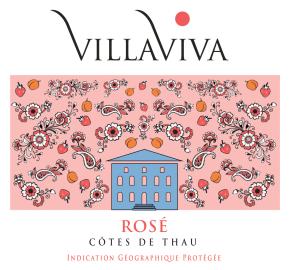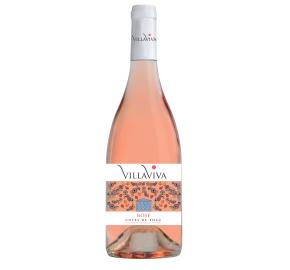Villaviva - Rose 2023
- Producer Aquitaine
- Blend 100% Carignan
- Country France
- Region Languedoc Roussillon
- Appellation Cotes de Thau
- UPC 873964001921
Log in to view pricing and order online
Don't have an account? Register here
Item# 1121-23P
Tasting notes
VillaViva is a luscious, aromatic nose of raspberries and strawberries. Fresh in the mouth with a well-balanced, full and lively middle palate, and a spicy, lingering finish. Enjoy anytime as an aperitif or with seafood, poultry, grilled meats, barbecue and Mediterranean-style cuisine.
Estate
VillaViva is an extraordinary pale rose wine produced from vineyards surrounding the fishing village of Sete, famous for its oyster beds, and facing the Mediterranean Sea. Located in the Cotes de Thau (pronounced “toe”) appellation, along the famous string of lakes (Etang de Thau) that make up the Thau Bassin, the VillaViva vineyards are planted on fossilized oyster beds, limestone, gravel and quartz soil and benefit from a sunny and dry climate perfect for rosé production. An elaborate subsoil network of fresh water and salt water conduits under the vineyards nourish the vines and contribute to the unique flavor of VillaViva. Because of the region’s rich marine biodiversity, Sete has been the center of a thriving fishing industry that dates to antiquity. However, it is commonly believed that the commerce of wine was equally as important; Etruscan amphoras found at the bottom of the Thau Bassin indicate that wine was being produced in the region as early as the 7th century B.C. VillaViva is produced from a state-of-the-art production facility that covers two appellations Cotes de Thau and PicPoul de Pinet (known for its white wines with delicious saline flavors). Because of the unbelievable price point and quality, the roses from the estate have been so successful that they are now “replacing water” in all of the top restaurants on the French Riviera.
Vineyard
Limestone, broken stone, and quartz soil.
Vineyards planted on slopes with southern exposure, borderering the Thau Bassin and overlooking the Mediterannean.
Unique microclimate - proximity to water ensures vines stay cool, and contributes to the freshness of the wines.
Vineyards planted on slopes with southern exposure, borderering the Thau Bassin and overlooking the Mediterannean.
Unique microclimate - proximity to water ensures vines stay cool, and contributes to the freshness of the wines.
Winemaking
After harvest, grapes are cooled and undergo pre-fermentation maceration (cold oak) in Elite vats at forty-six F for six hours. VillaViva is made from the free-run juice which is fermented at low temperatures to retain fruit and freshness.


